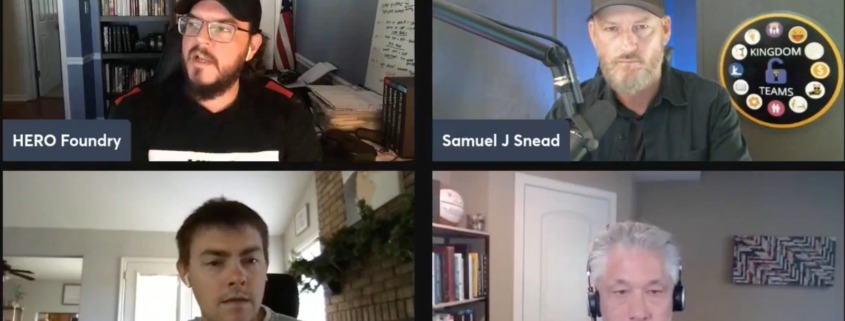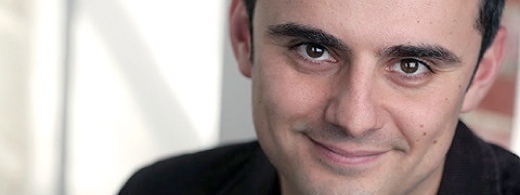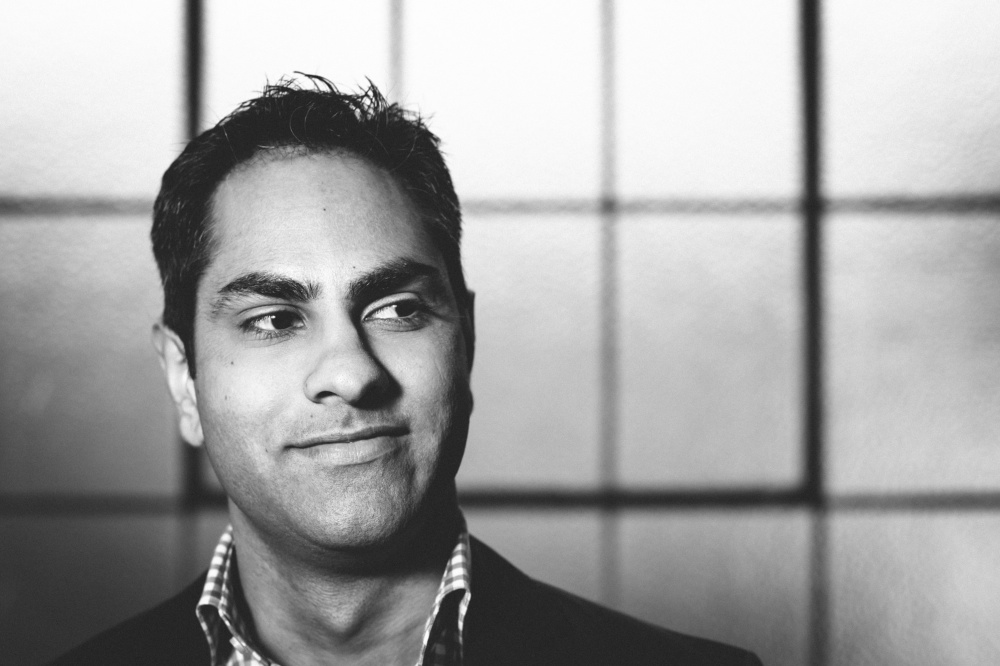He won’t just teach you to be rich…he’ll also teach you the skills to get into college, get a great job, bargain for what you want, and so on. Ramit Sethi is one of my absolute favorite bloggers. He’s based out of Palo Alto, and is known for IWillTeachYouToBeRich.com. But aside from being a personal finance guru, Ramit is a graduate of Stanford University, he’s founded several companies such as his latest, PBwiki, he has two books coming out in the next year, and he’s just an all-around nice Silicon Valley guy.
Now, part of my own personal mission is to start interviewing people who are doing what I want to do, or people who are experts in their fields–in business, finance, environment, technology… So, here is the first of what I hope to be many.
Ramit was kind enough to sit down with me (outside on a freezing Sacramento morning no less!) for a cup of coffee on a recent trip home to visit his family. I am so grateful for the time and thoughtful answers he gave me! We had such an amazing discussion, but here are the highlights.
Ramit, how would you say your essential self differs from your social self? In other words, if you could be living your dream, independent of how others might perceive you for it, what would that look like? Do you identify yourself more as the IWillTeachYouToBeRich teacher, or as something else?
Actually I think I’m lucky enough to be able to do whatever I want right now, and I’m doing it! Some of that involves trying to build a great company with some other guys, some of that involves writing a great blog that’s completely my own, and I can say whatever I want–no editorial control or anything. I don’t think there’s much of a difference between what people see on my site versus my personality. What my readers see me talking about day-in and day-out though is personal finance and entrepreneurship, and really there’s a lot of other stuff that I’m interested in–I don’t talk about college recruitment, and I don’t talk about my travel that I do on a personal basis. And if there’s one thing my friends would say about me that’s a little different from what’s on the site is that maybe I’m a little bit louder, a little bit more vulgar in real life, but pretty much what you see is what you get. The biggest compliment people give me is that they say, “When I read that I can actually hear your voice!”
It’s hard to put me in a bucket though–like, personal finance over here, wiki over there, college recruiting over here. That may be a little confounding, but my general goal here is to find what I’m really interested in, get really good at it, and then turn around and teach other people. That’s what happened with personal finance, that’s what happened with the musical instrument I play–the tabla… Teaching it absolutely helps me learn it better, because people challenge me all the time when I’m teaching things. That to me is pretty exciting, because I can read all the blog posts and all the books, but there’s nothing like having somebody with an individual question I don’t know challenge me, so I really appreciate that.
What sort of background do you come from and how did your childhood influence the person you’ve become?
We’re sitting here right now in Sacramento–we’re about a five minute walk from my house. I grew up very middle class here, my parents were very modest. They were immigrants from India, and what they taught me were things like “just ask”–ask for a discount, or ask to get published, just write it up and send it in to the newspaper! They taught me the scrappiness of “just ask–there’s nothing wrong with asking”, and not to fear failure. I manage most of my life through my email, and I have a folder in my inbox called “failures.” And for me, I say if I’m not getting 4 or 5 failures in there a month, then I’m not trying hard enough. When I was in high school it would be like applying for scholarships, in college it was applying for grants or projects, now it’s applying for jobs, etc. Learning from your failures is like: what did you do wrong? And what could you do better?
What was your experience like studying at Stanford University? How do you apply what you learned about psychology and technology to the business world?
I loved it! I had a great time there. I did my undergrad and graduate work there. I studied technology and psychology. It was about the people. The way I prioritized my work was: number one was my friends, two was my own business stuff, then third comes my academics. I don’t know if parents will like hearing this, but if it came down to me working on an essay that was due next week or going out with my friends, I would almost always choose going out with my friends. I don’t know if that’s for everyone, but it worked great for me, because I spent all this time meeting all these different people that are now all over the country that I can visit anytime, and they taught me more than any book could teach.
I studied a lot of bargaining and persuasion, and combined that with technology. In general I think it helps me understand things like, “Why are my friends saying this or acting like this?” In business, what are the levers that would motivate people? I’ll give you an example: Some people are really, really motivated by money, and that’s okay–they’re open about it. Other people are more motivated by ego, while some people–a lot of engineers, for example–are motivated by a challenge, like “How difficult is this problem? How big is the impact?” So, it’s like, you figure out those motivational things, and you work with the person to get what they really want. If someone came to me and they offered me a lot of money, it probably wouldn’t be the most motivational thing, because money is not as important as other things to me right now. So, it’s really important to understand people’s motivation and then turn around and apply it.
What would you say are the most valuable lessons you learned from your education that have helped you become successful since?
I learned that being smart is not the most important thing–I’m a big proponent of that. There are people who are way smarter than I am; probably most of my friends are way smarter than I am. And that’s good if you want to, for example, get into law school. But for my path, being book smart is not the most important thing by any means; it’s about, “How do you get things done? With really limited resources?” If I wanted to write an e-book or start a website, I’m not too technical, so I would need to persuade people to help me, and I would need to create this passion in them. Or how would I go around the bureaucracy of a university and get what I want? That was the most important stuff I learned. For me, what I value more than anything when I’m hiring somebody, it’s not your GPA–I don’t give a damn! It’s “Show me some examples of where you’ve gotten something done.”
What experiences outside of your education would you say have been essential? What skills are there that you think business-minded individuals need that aren’t taught in school?
Number one is taking initiative. In school it’s so easy to get by if you do the papers, take the tests, and get an A or an A- or whatever. You’re done, you’re satisfied. And to me, that’s like the bare minimum. I would rather get the B or a B- in a class, and have done something really cool outside of class. So taking initiative to really find what you’re interested in, talking to the right people… Like you emailed me and here we are meeting up! That’s exactly what I’m talking about. I do that all the time. I did that in college, I do it all the time with CEOs or anybody I think is interesting. Take them out to lunch, take them out to coffee. They teach you something, maybe introduce you to their friends. And that’s the way that I’ve been fortunate enough to really come further than I thought I would have been able to.
What motivated you to start blogging?
When I was a sophomore–this was around 2002 in college–I came up with this idea called IWillTeachYouToBeRich, and I came up with the framework for a one-hour class, which I still use. And I went around to my friends telling them, “Hey you guys have got to take this class! In one hour, I will teach you how to be rich!” People would be so excited but they would never show up. I was so frustrated, so finally I thought I’d just start a blog, and I’ll just write–I’m gonna make it funny, I’m gonna make it how I really talk in real life, and I’m not going to make it really pedantic and boring like the old white men at Wells Fargo and Fidelity. There’s really cool stuff to be taught here; there’s so many lessons! And I can learn as I teach. So I did that, and for the first six months there were very few comments–like maybe one or two comments per post. And I just kept writing because I liked it. After six months I had all this that I had written; I was like, “I’m on a roll.” People started commenting, and maybe about 8 or 12 months into it there was some sort of click and a lot of people started commenting. In the background I was also doing a lot of marketing to spread the word. I was covered in the Wall Street Journal and a lot of people started coming to the blog, and then it really started building into a community.
College students and recent college grads are my core audience, that’s who I go after. But what’s interesting is that I have all these people I had no idea about. I have a very large group of 30-40 year olds, and I have high schoolers, and I have people who write me that are senior VP at a Fortune 100 company and they’re reading my blog! And it just happened because the word spread.
How significant do you think blogs and podcasts are as a new medium of communication?
I think they give everybody the ability to write something interesting about what they do, or communicate something interesting. I always say, everybody has an X-man ability… everybody’s got at least one thing that they’re amazing at—-they’re an X-man! Somebody’s got the piano, somebody’s an entrepreneur, someone may be a Westinghouse Scholarship winner, whatever it is. Everyone’s got something. If everybody just put their one thing, or their passion, on a blog or a podcast… I’ll tell you IWillTeachYouToBeRich was probably the best business decision I ever made. Now I have a huge reach, and I feel very fortunate about that. Business opportunities have come my way that I never would have found. The ability to start a blog–which you can do in like ten seconds–is great. It’s letting the really passionate people come out and spread the word.
What was your first company and what was it like founding and running your own business for the first time?
First one was right out of high school, called Scholastic Advising, which still operates with the involvement of my parents. When I was in high school I got so frustrated because so many people would say, “Oh I’m not going to apply to Stanford, because even if I got in, I couldn’t afford it.” This is exactly the wrong way to think about it. The right way to think about it is “I’m going to apply everywhere. I’m going to do a great application, and if I get in, then I’ll think about the money.” And usually what happens is if you’re good enough to get in, then they’ll take care of you. I saw a lot of kids doing this and it made me sad. My parents were very middle class and there were four kids in the family. They told us, “You guys have got to get scholarships, otherwise you can’t go to college.” So we did! And there’s no secret, it’s the same things I talk about: take the initiative, be patient, learn from your mistakes, that sort of stuff. So Scholastic Advising was an advisory company, a consulting company. We helped high school students get scholarships and financial aid, and with admissions. That was what we worked on, and it’s still continuing through my parents.
You’ve done some consulting with Omidyar Network and Storm Ventures. What has that taught you? And what do you think of the whole “web 2.0” phenomenon?
Pierre Omidyar was the founder of eBay. He’s very wealthy now and he wants to give back to improve the world. I was brought on to do some social psychology consulting. I would evaluate deals and make suggestions–“I think this is good, I think you should invest this much…” Similar thing for Storm and I’ve also done some consulting for a capital firm called Gemini. Mostly they want to get in and learn about this web 2.0 stuff and what young people are doing these days.
I think one thing a lot of young people don’t realize is that they are experts at what young people are doing! If you use instant messenger, Facebook, Myspace…you are an expert, and older people have no idea what’s going on! And that is a marketable opportunity. So, I turned that around and I marketed it, and they hired me as a consultant to teach them about blogs, social networks, photos, music sharing, all that stuff. A lot of companies are stuck in the past and they’re just buying big billboards, and they don’t understand young people don’t care about that anymore. We care about personalized recommendations, we care about what our friends say, we see it on Myspace and blogs and YouTube. And these older folks are struggling to understand that, so I think there’s a humongous opportunity for young people, if they’re smart and they package it right, to say “Here’s the things you need to know, here’s what I’m getting on a daily basis, and here’s the things you should be doing.” Older companies are paying a lot of money to have market research firms come in and instruct them, and I always just say why not get together a group of 5 or 10 people and just talk to them?
You’re also a co-founder and VP of Marketing for PBwiki. Tell us about PBwiki and where you hope it might lead you in the next few years?


It’s a scrappy startup that I love! We all co-founded this, there’s three of us, three Stanford grads. PBwiki means it’s as easy to make a wiki as it is to make a peanut butter sandwich. And a wiki is an easy-to-use website that lets a lot of people edit it together. You may have heard of Wikipedia; that’s a good example of using a wiki as an encyclopedia. So if you have a group project you might say “Hey Mike, you put the information about Thomas Jefferson, I’ll put the information about Susan B. Anthony.” Or if you’re taking a vacation, “You do the airfare, I’ll do the hotels, and we’ll put it all together and see what everyone has done.” And of course businesses are using it, educators are using it in the classroom… If you go to PBwiki.com it takes about ten seconds to set one up, we host it and manage it, and it’s free for you! And if you want to have more features or more space then you can pay us a small subscription fee. So we’ve hosted over 140,000 wikis in about a year, and it’s growing very quickly. We got offices a few months ago, which is a big step for us. And we just hired somebody else on, and have taken some funding. The goal here is: wikis for the masses. Most people still don’t know what a wiki is, and we want to share that, because if you’ve ever sent emails back and forth a hundred times editing this and that, why not just put it on the wiki where everyone can see the changes and everyone can go back in time to see past revisions?
You’ve co-authored a book on college recruiting coming out — Recruit or Die, scheduled for release July 5, 2007! And the big news is that you just signed your second book–this one to go along with your personal finance blog! What will be in your forthcoming IWillTeachYouToBeRich book that is unique from the online resources?
IWillTeachYouToBeRich, the book, won’t be coming out for a while. In fact, I’m just starting to write it. But if you’ve read my blog, you know that I have a no-nonsense style. I’m not about platitude, I’m not about being bought by any corporate interests, I’m just about telling people the best things to do. And I offer some different ways of thinking about things: for example one thing that I encourage some people to do is buy a new car instead of a used car. And that’s different than a lot of personal finance people, and I explain why. If you like my reasoning or not, at least you understand it. IWillTeachYouToBeRich the book will have a combination of personal finance and entrepreneurship, and you’ll be able to pick it up and finish it and say “Man, I know what to do tomorrow, I know what to do next week, and I know what to do for the next 30 years.” You can never finish learning, and I’m not saying this should be your only book, because of course it shouldn’t. But in terms of getting your strategy together and getting started, in the one or two hours it takes you to read it you will know exactly what you need to do. That’s the difference–I am very tactical. I could give you a lot of generalities like “start early” and “diversify,” but that doesn’t mean anything if you think “Shit! What bank account should I get?” Or, “What do I do with this debt?” I’ll be saying: here’s the steps, here’s what you do, and here’s what to look out for.
You’ll be able to see excerpts of the book on my site. And it’s not going to be just a book. I’ll be letting my readers contribute to it and actually add some of those stories to the book, and I’ll be asking people to actually help me shape the way the book looks, give me links, tell me what you think should be in this book. So it’s going to be a pretty collaborative effort. And there will be some fun stuff that I won’t announce yet, but stay tuned.
In your opinion, who are 4 of the most authoritative experts (other than yourself, of course) in the personal finance field today?
One I really admire is Suze Orman. I’m actually a big fan of hers. Some people are not a big fan of her style, but I don’t mind someone’s style so much if they have good things to say. Every time I watch her show I learn something. What I like about her is that she encourages people to manage their own finances. One of my core tenets is that almost everyone can manage their finances without a financial advisor. And she teaches you that you don’t want to be paying fees to these financial companies–you want to learn a little bit, and do it on your own.
Another guy I really admire is Jonathan Clemens at the Wall Street Journal. He’s saying “Think long term.” And a lot of young people are very stupid–they’ll say things like “I bought this stock and I sold it for a 20% profit.” And they don’t realize that–no they didn’t–they had to pay a huge amount in taxes on that, and they didn’t realize their gains as much as they could have, because if they just held it and read the research, long-term investing beats short-term almost every day of the week. He focuses on getting started, putting your money away and diversifying. It isn’t sexy, but there’s a difference between being sexy and being rich.
JLP at AllFinancialMatters is great. And J.D. Roth, who just started up a new blog called Get Rich Slowly, has just been around for a few months and he’s doing very well–he’s got great readership and great articles and it’s not a surprise. I think these guys are doing a phenomenal job. I think it’s interesting you have these experts like Suze Orman, but then you have just these regular guys doing everyday blogging, day-in and day-out.
To top this all off, do you have one financial tip you think everyone should know?
I don’t do that. It’s pretty sensationalistic to say I have one tip. IWillTeachYouToBeRich is a sensationalistic enough title! If you go to the site, you’ll be surprised because it’s not about any secrets. There are no secrets, but I’ll tell you a few things that I think work. You don’t have to be the smartest person in the room, you just have to get started early. And what I mean by that is you have to understand your financial accounts. You have to look at how much you are spending–most people don’t even do that!–and I will teach you to do that. And then you say “Alright I have one credit card; I need a few other sources of credit and I need to use them effectively.” And then you can get a free E*trade account and you can start trading a little bit and investing in index funds, which are a pretty good bet. And don’t be stupid! A lot of people just watch MSNBC and read CNN Money, which are some of the most hyped-up, unbelievable things, and they buy stocks that they read about in Smart Money. Big mistake! Because those magazines and those TV shows have to sell something. And I’m not out to sell anything, it’s just about picking something that you know and you love, and you use. Finally you need to learn to track these things, whether you use a pen and paper, or Excel. Tracking exactly what you’re making and what you’re spending is a way that you can get rich over a long period of time.
I have a very boring investment strategy: evaluate my diversification strategy, understand that I can take a lot of risk because I’m young, buy stocks or index funds and let it ride. If I think there’s a good value, buy some more. I’ve hardly ever sold. That’s not sexy, but at the end of the day the question is: do you want to be sexy or do you want to be rich? My basic message here is you don’t have to be the smartest person in the world, you just have to get started. And taking that first step will put you above 99% of other people your age. If you do start early and you are sensible, I think long-term you will be rich. That’s it, it’s as simple as that.
Well, again I want to thank Ramit Sethi so much for taking the time to meet with me and discuss his successes and experiences. If you’d like to learn more about Ramit and what he does, check out his blog IWillTeachYouToBeRich, his company PBwiki, and his upcoming book Recruit or Die. Students who’d like to learn more about personal finance can start with this article on Thrilling Heroics, Six Simple Money Tips to Get You Back on the Financial Track.






